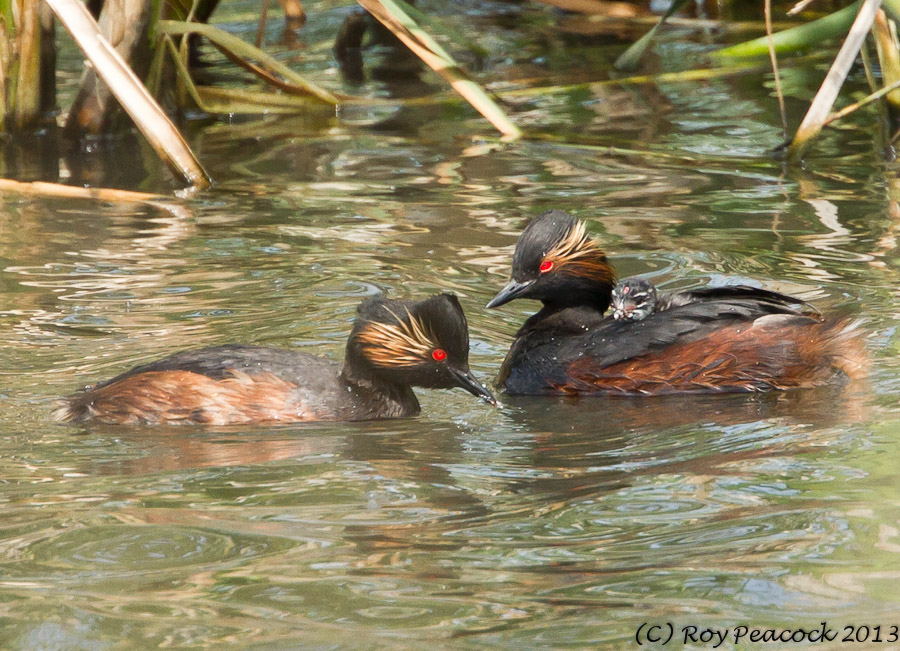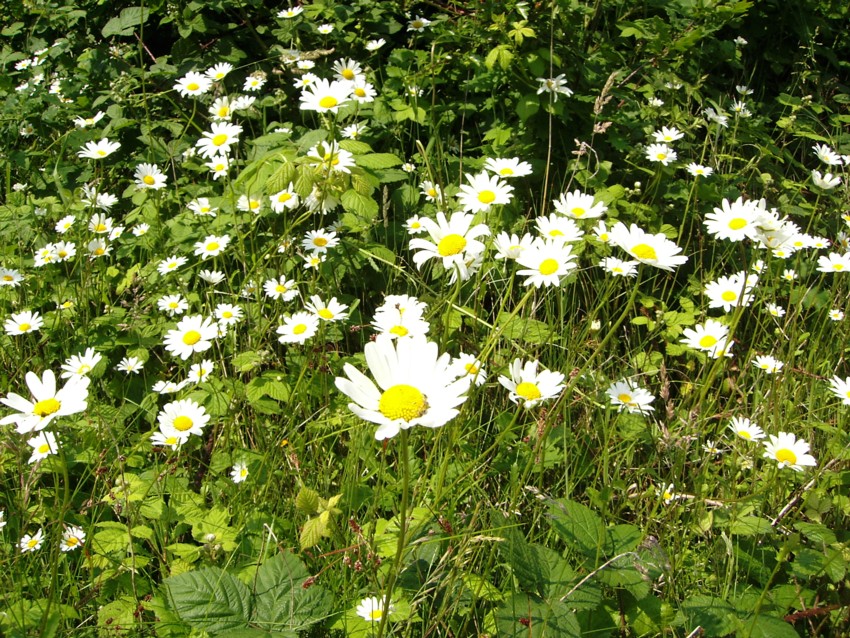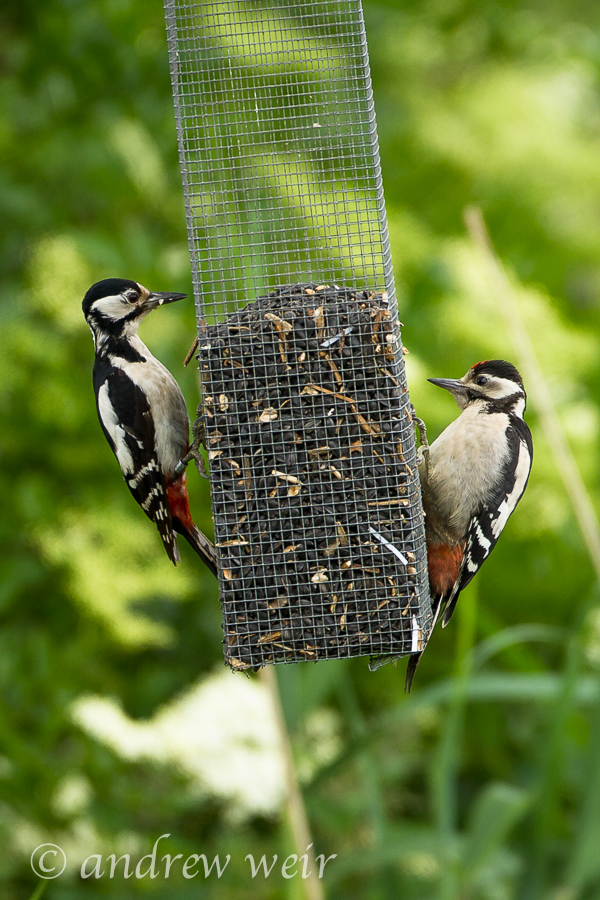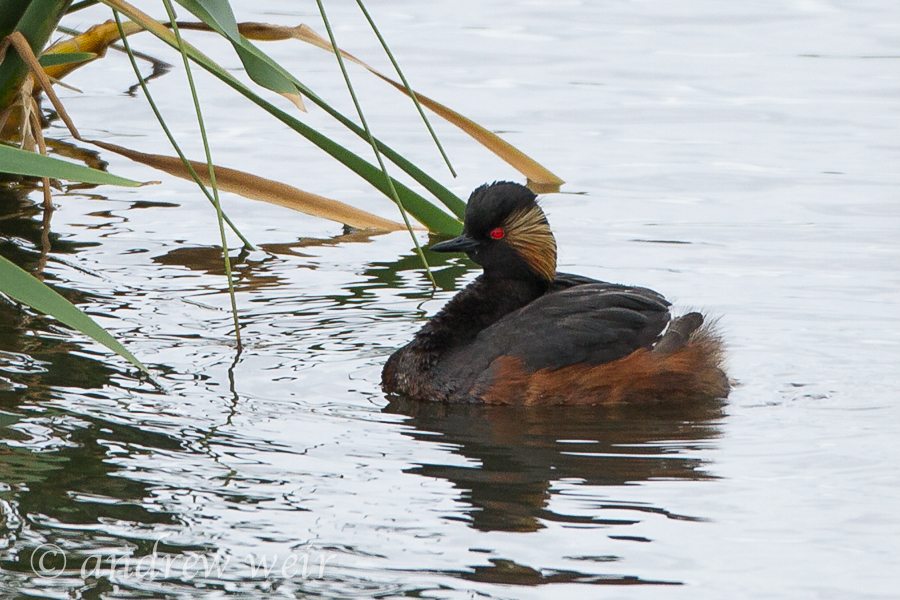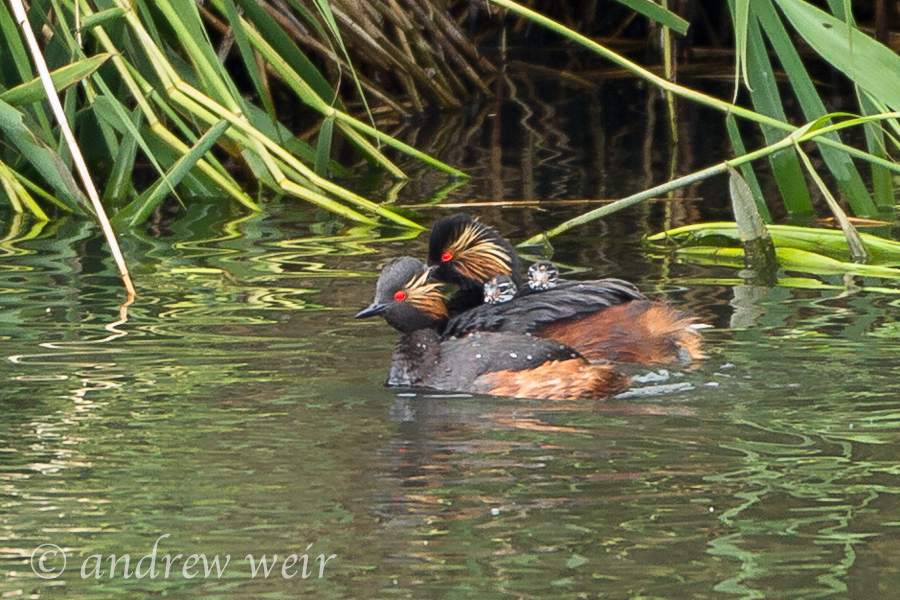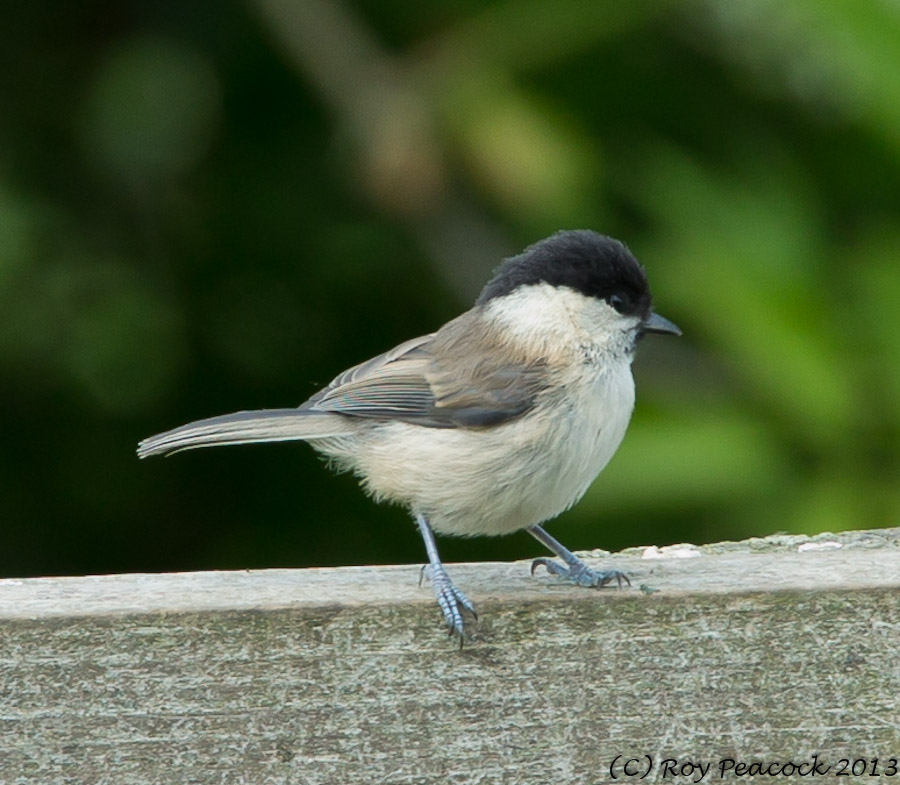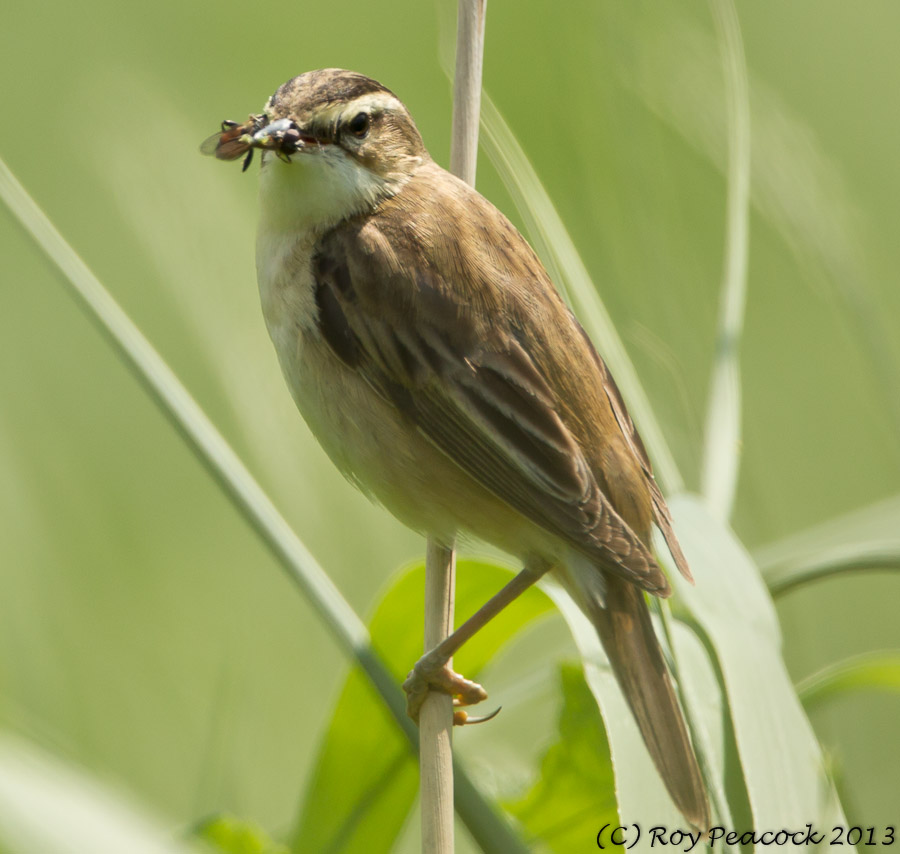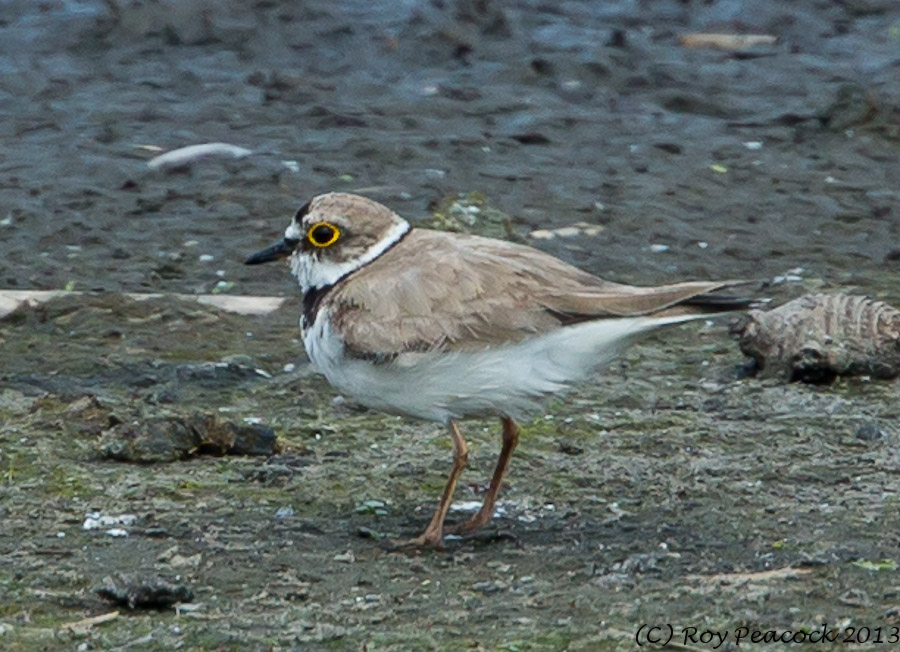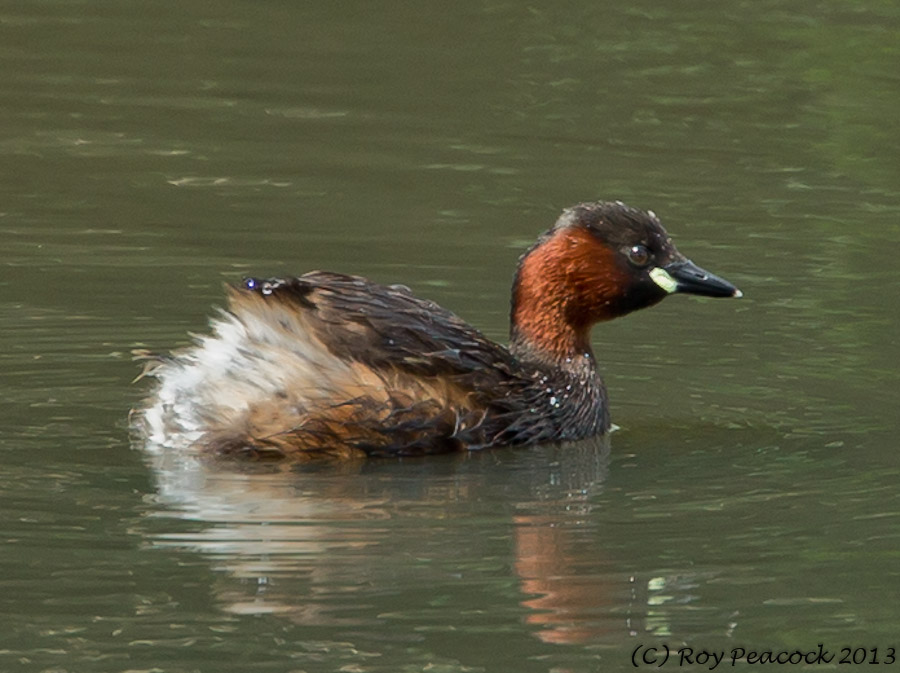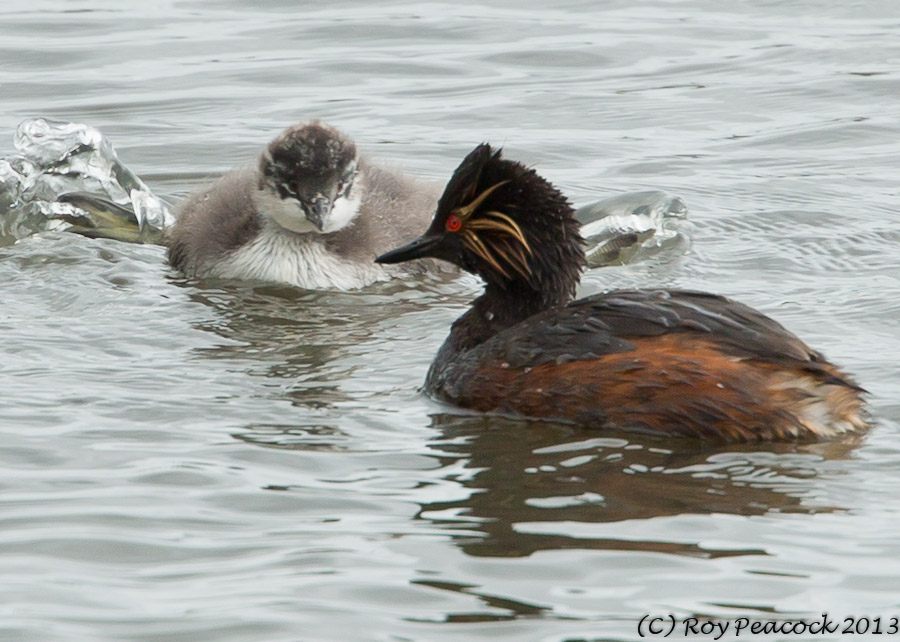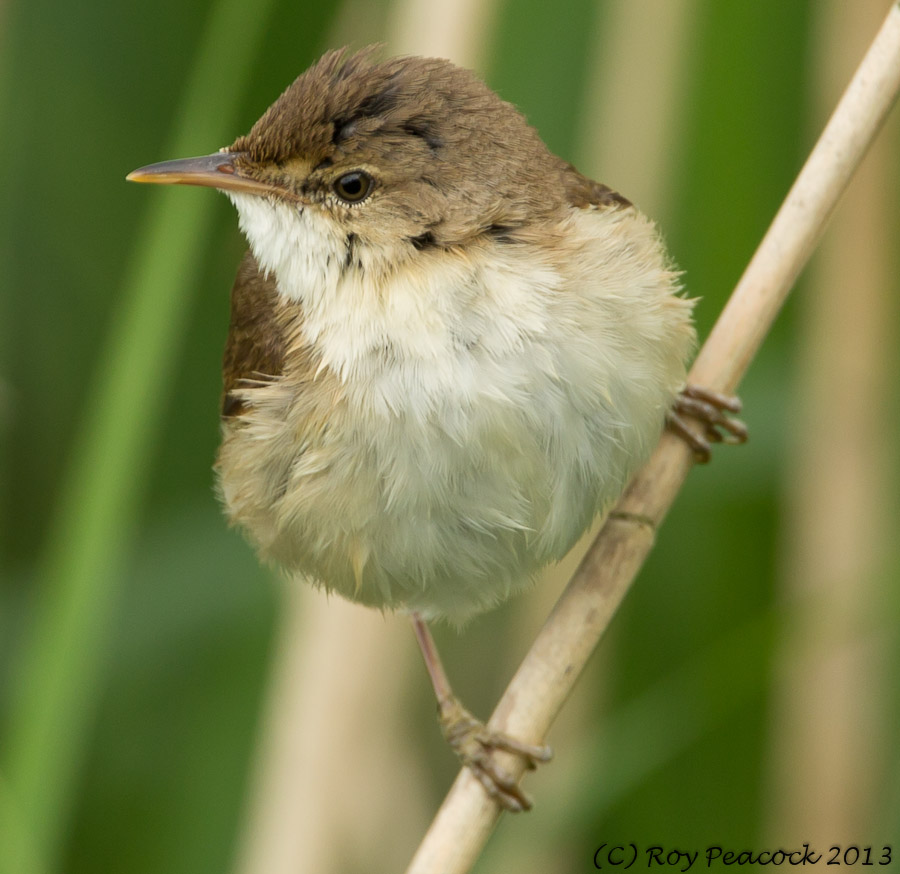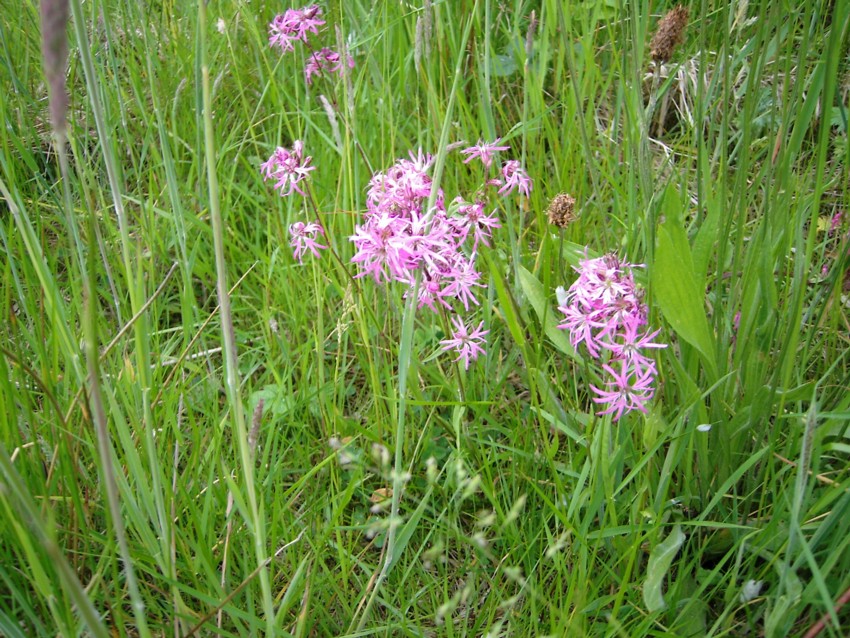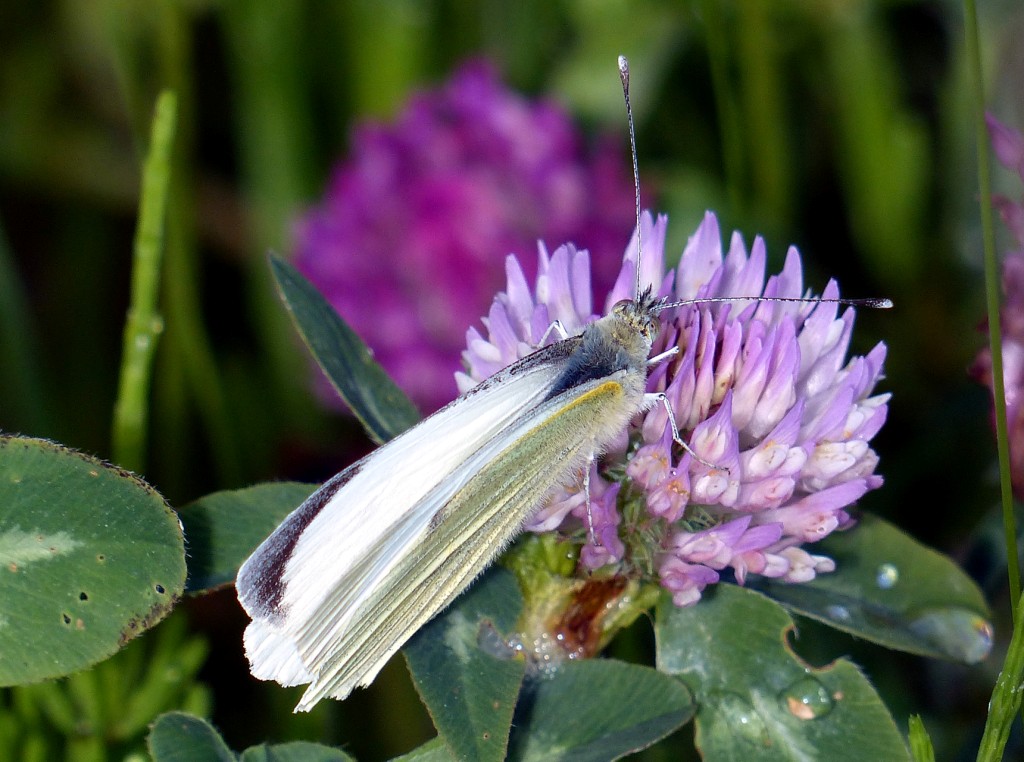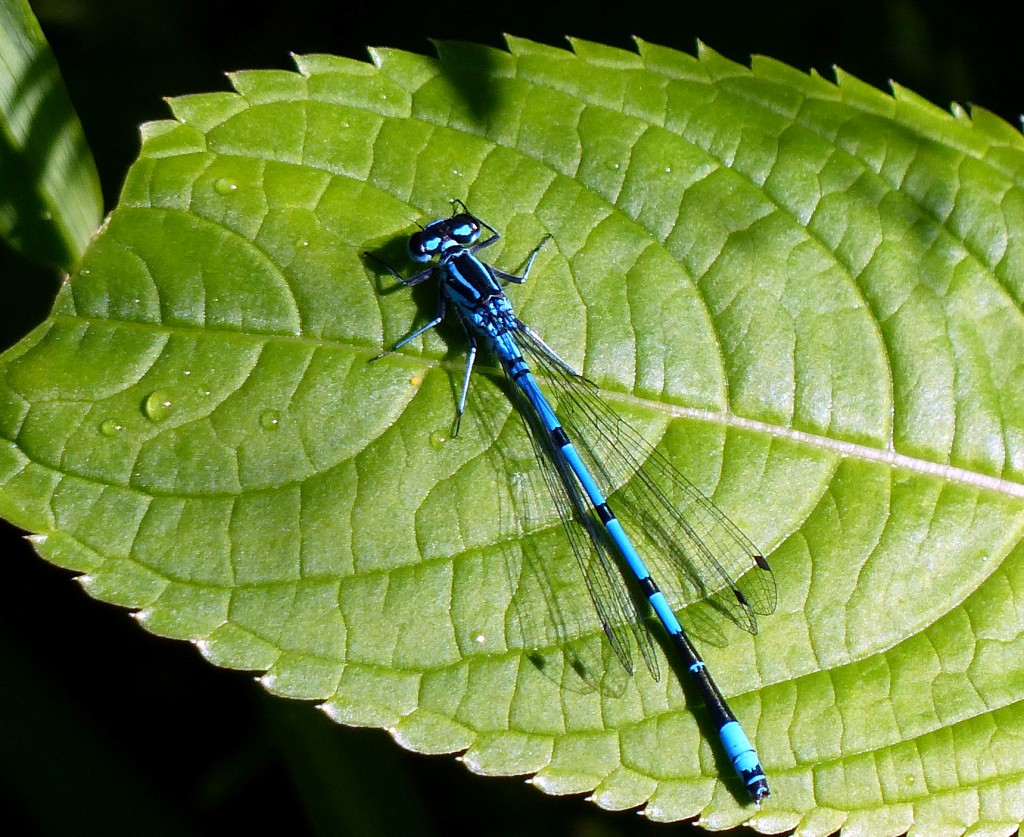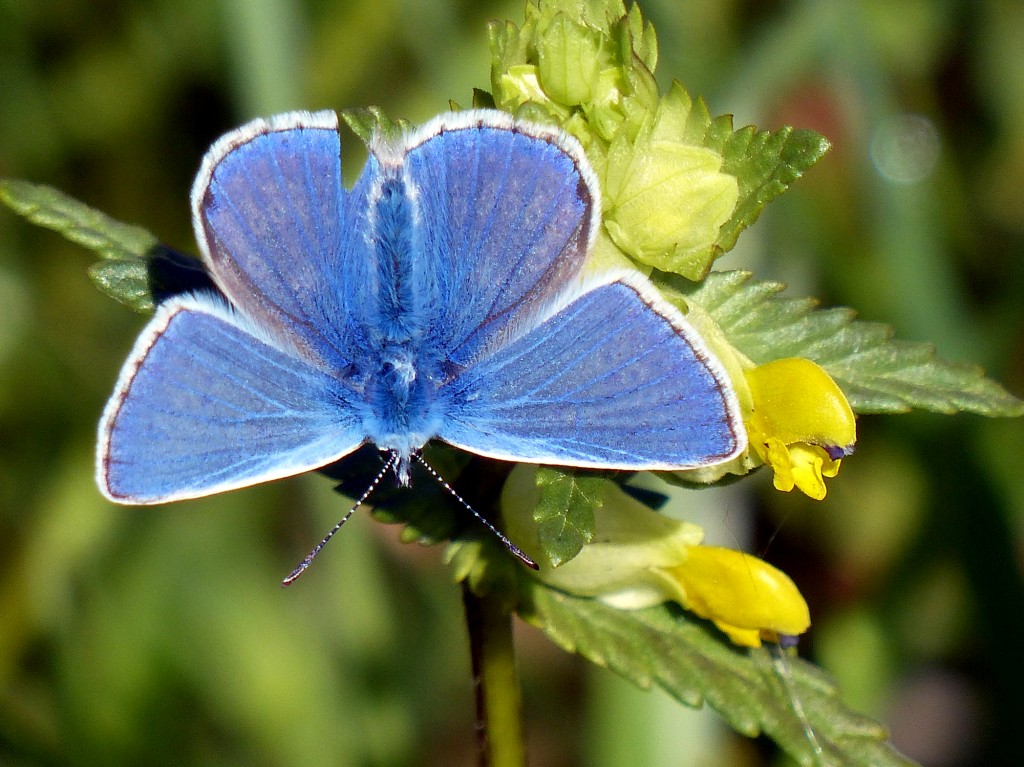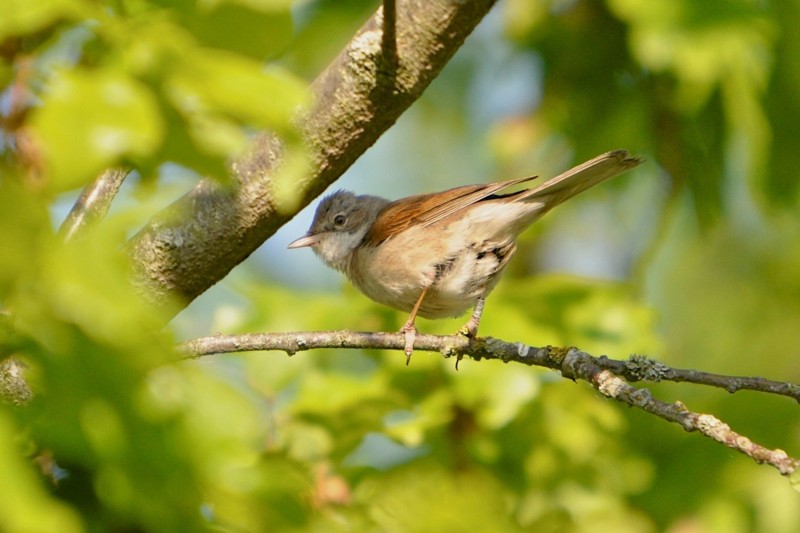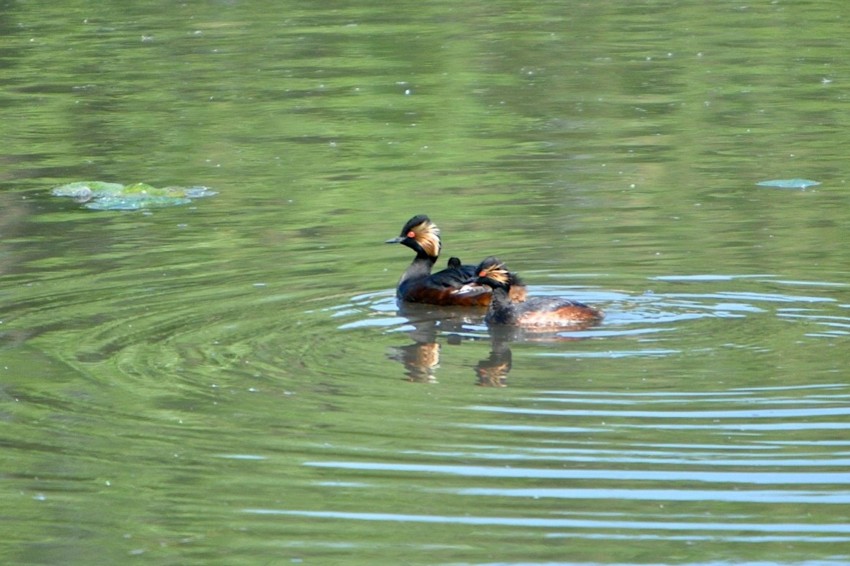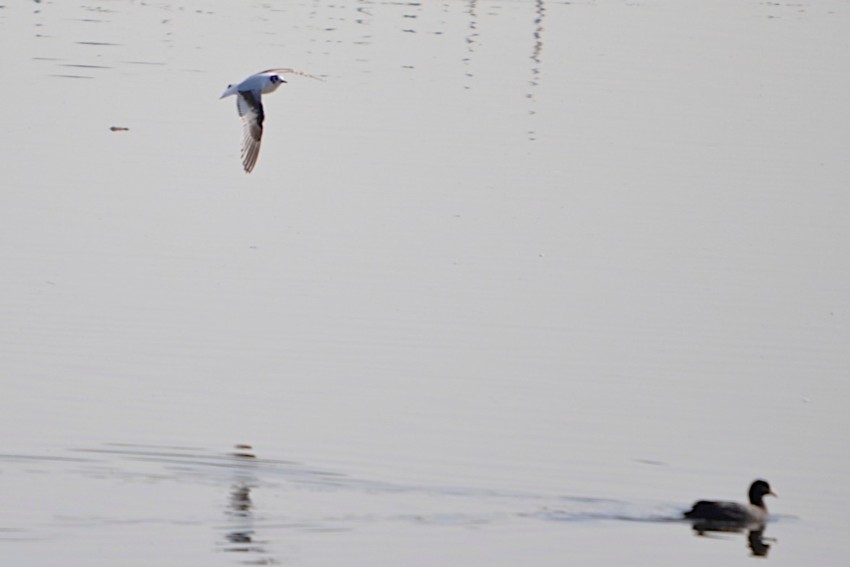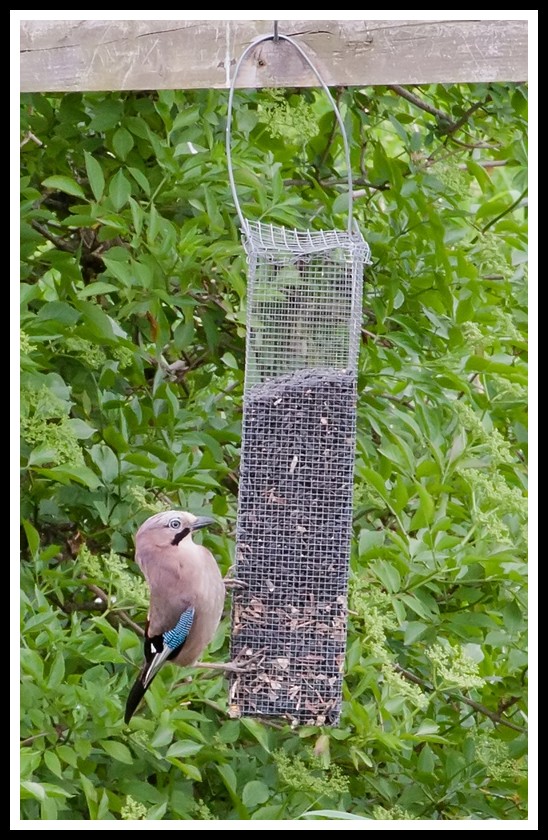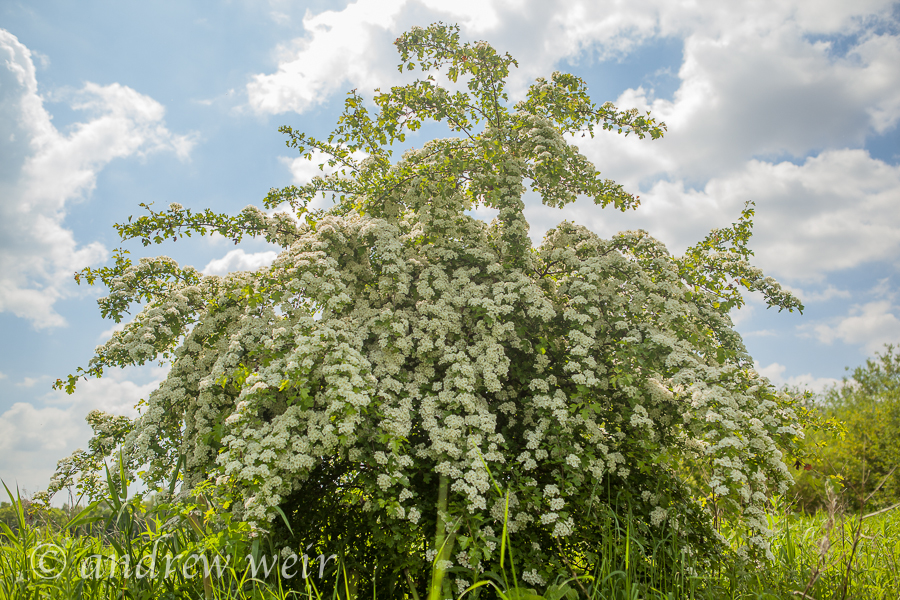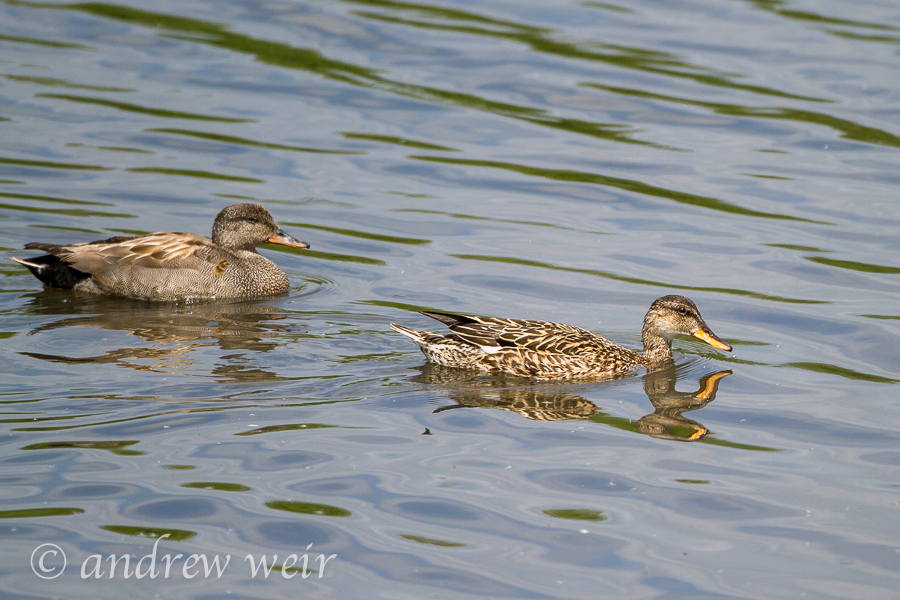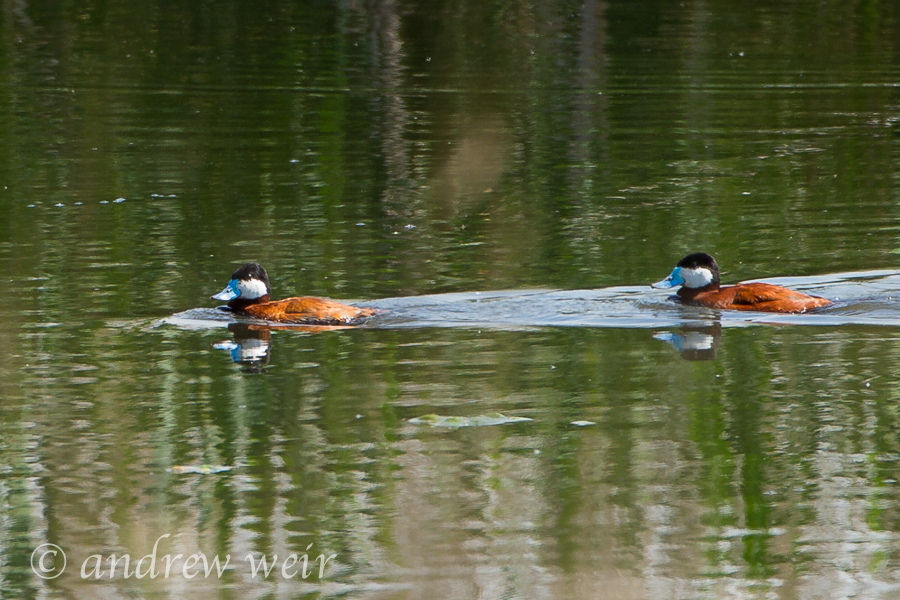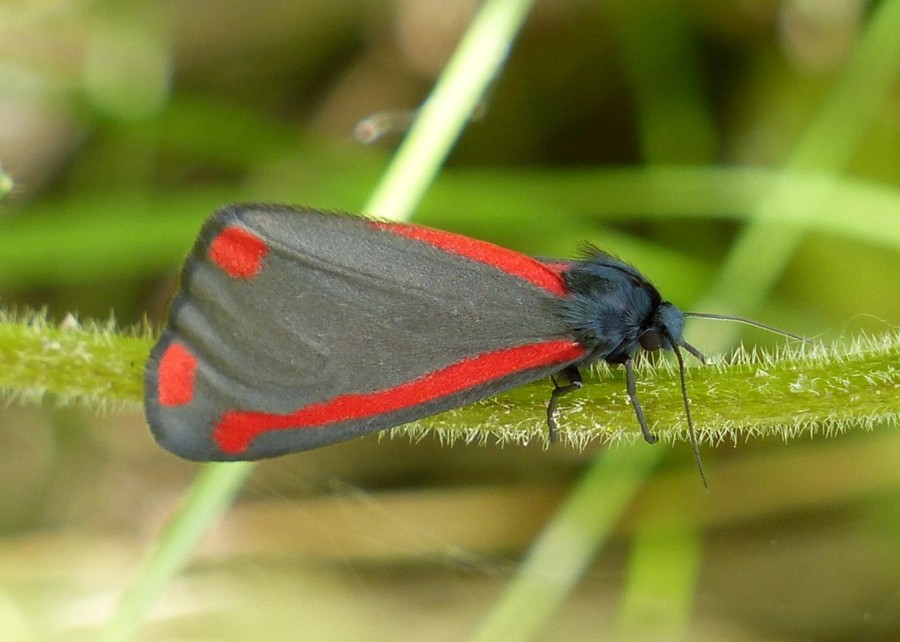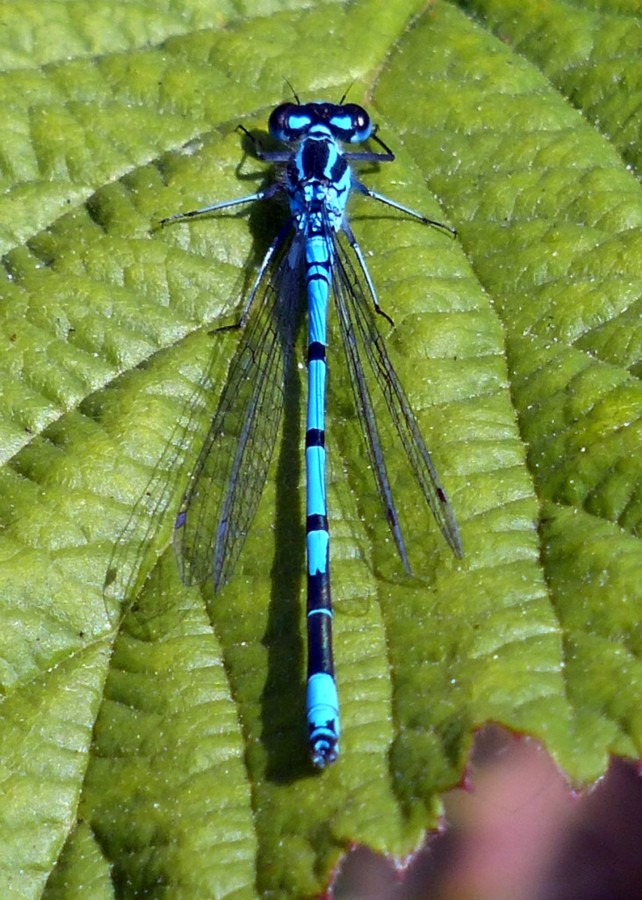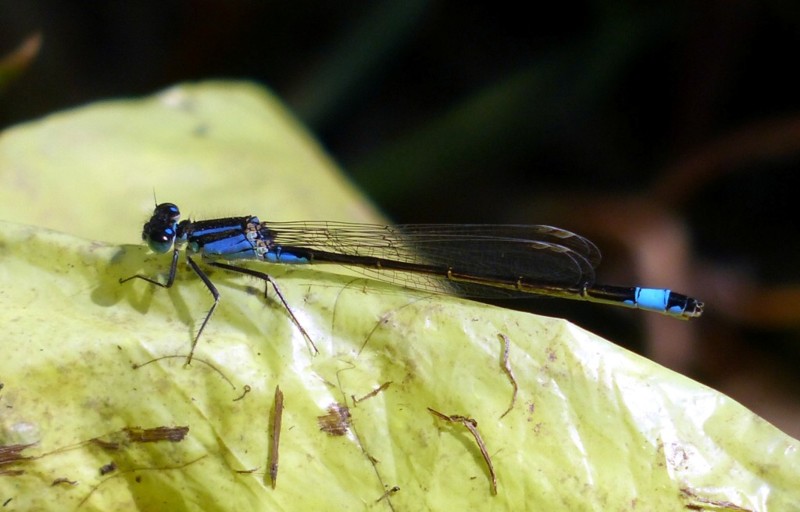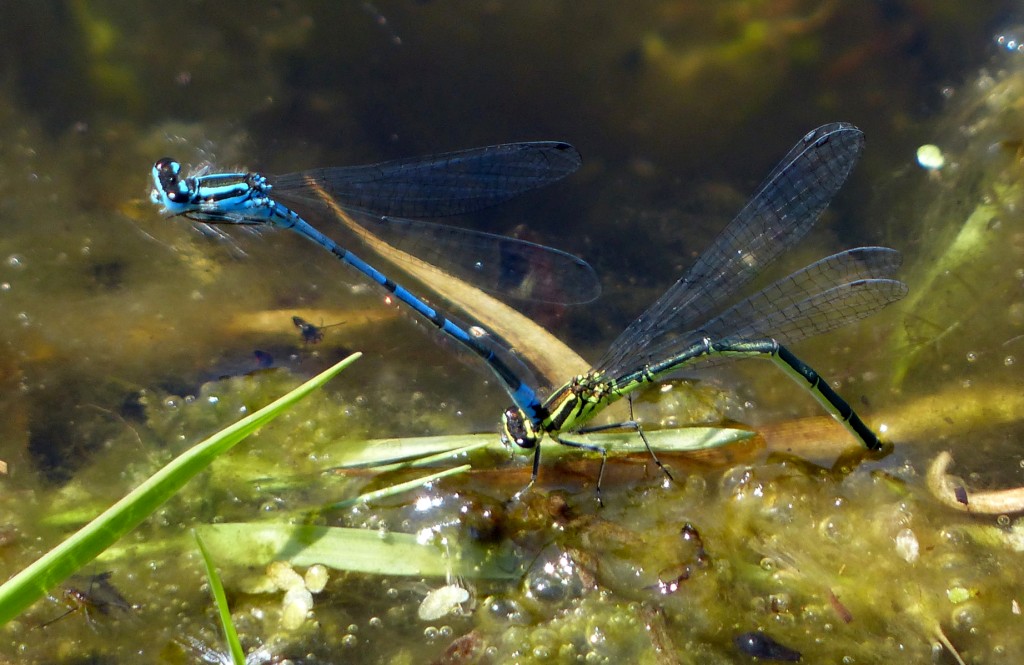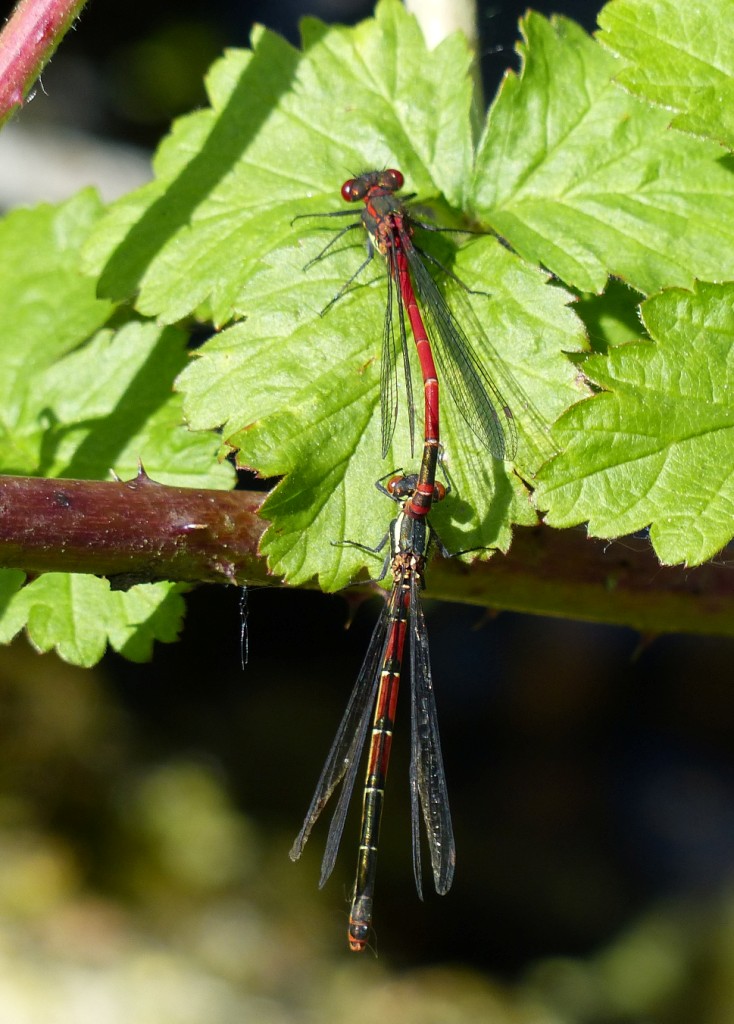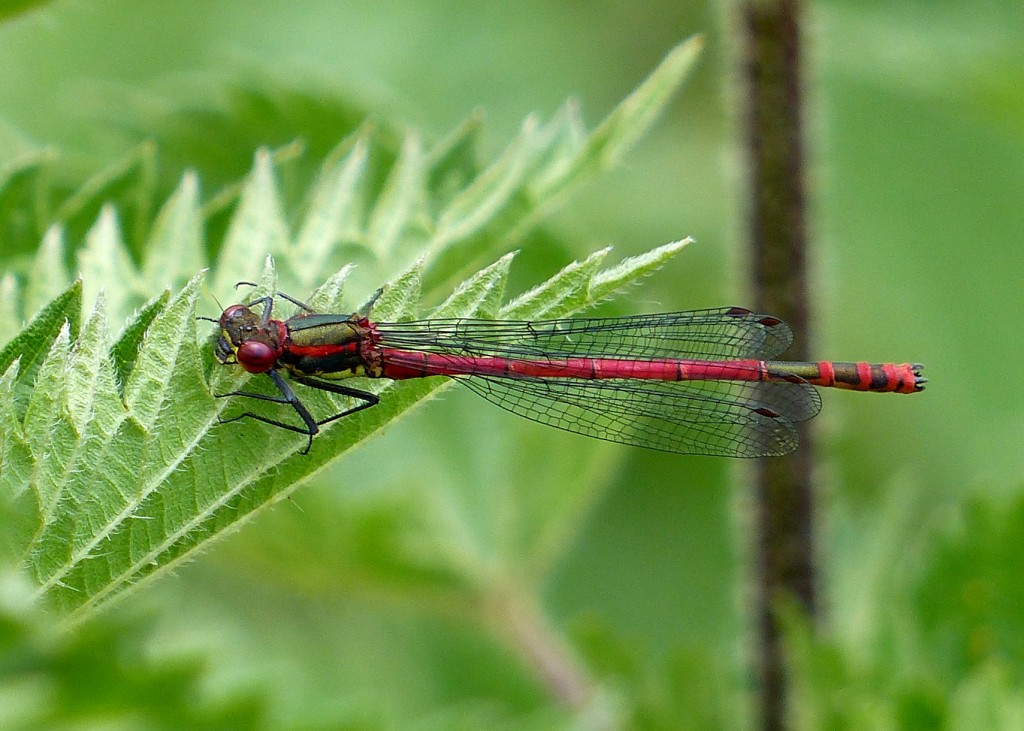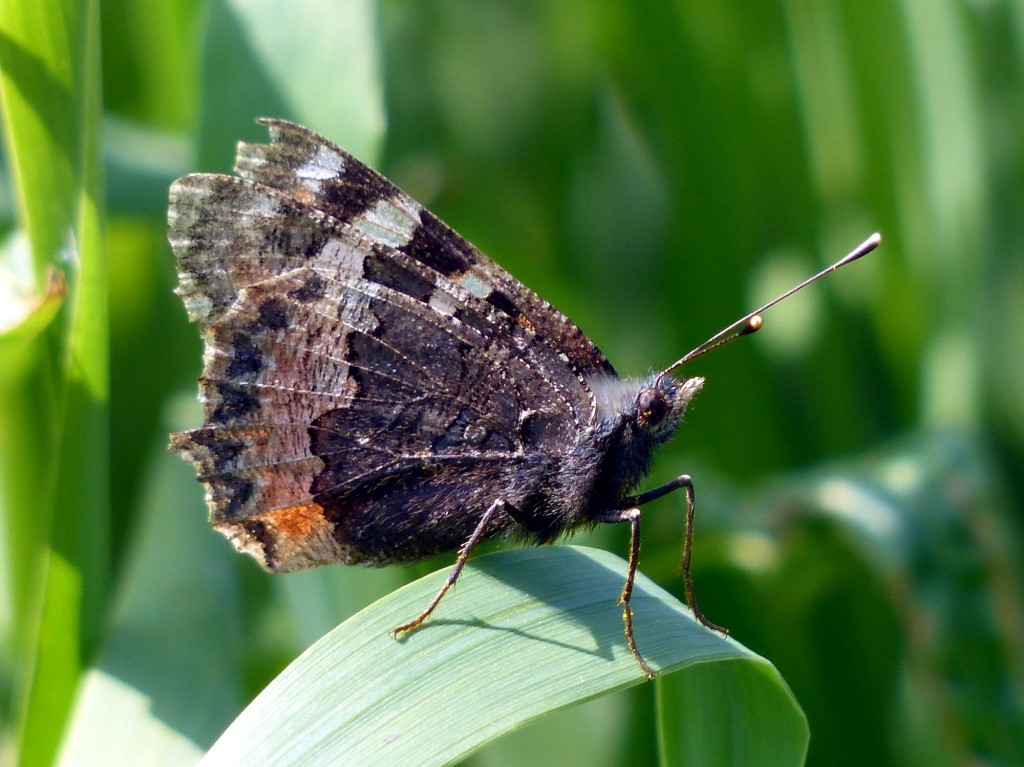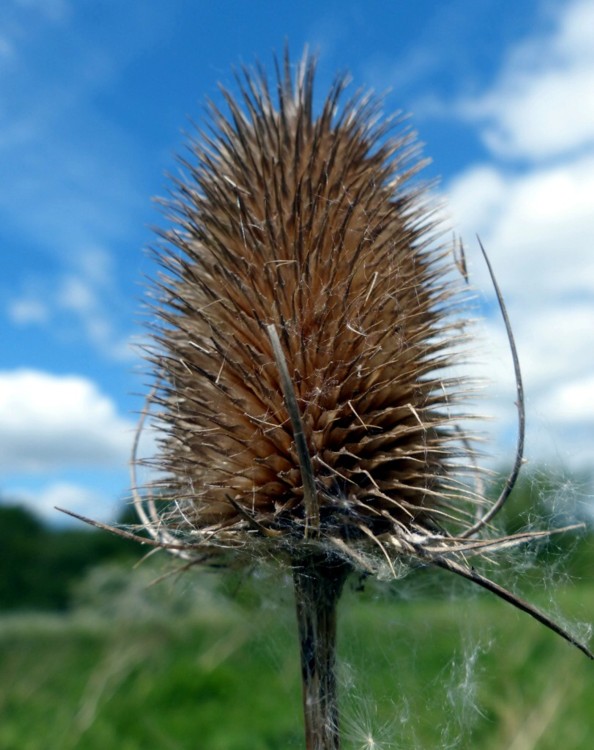Woolston Eyes Monthly Sightings
2013-06-30
Dave Riley was on No1 bed on the Wednesday, catching 64 birds, 44 new included six Chiffchaffs and three Whitethroats, also caught were the first Great Spotted Woodpeckers (two including a juvenile) and Jay of the year along with the first juvenile Chiffchaff, Blackcap and Bullfinch. Sightings on the bed include a Peregrine with prey (Black-headed Gull), juvenile Little Grebe and juvenile Water Rail.
Sunday was the Group’s Open Day and the No3 bed ringing team laid on a 10 hour ringing demonstration for an estimated 600 visitors to the Reserve. With Kieran Foster in a continuous “show and tell” role the team restricted themselves to 16 nets and caught 156 birds (111 new and 45 retraps). Of these 156, nearly half, 76 came from the two nets by the feeders. The established pattern of differential dispersal between juvenile Great Tits and Blue Tits was again starkly evidenced. Of the 66 Great Tits that fledged from their boxes this year they retrapped 14 or 21%. Of the 54 fledged Blue Tits they retrapped just 1 or 2%. This latter figure is typical for their young Blue Tits. Breeding success may be patchy, as they did not catch a single Dunnock of any age nor any juvenile Blackbirds, also, no Sedge Warblers were caught.
Sightings on the bed include Shelduck with young, Common Tern, Little Ringed Plover (2), Oystercatcher, up to 16 adult Black-necked Grebes, Kingfisher, and Garden Warbler (2).
Submitted by: Dave Riley
2013-06-23
There was no ringing on the reserve for w/e 16/06/2013
On the Monday, Dave Riley was on No1 bed catching 27 birds, with 15 new including the first juvenile Robin and Dunnock of the year. Amongst the retraps was a British control Reed Warbler and two visiting Greenfinches from No3 bed and a Reed Bunting originally ringed on 12/09/2009 and only caught once since then. Sightings of note included 30 Swifts flying east at dawn and a Hobby flying west.
The team on No3 bed were out on a breezy Saturday morning catching 34 birds with 22 new including two Woodpigeons and their first juvenile Dunnock and Whitethroat, they also caught their first bird in wing moult - a Great tit.
General sightings included 17 adult Black-necked Grebes with six broods, Peregines with four young, a pair of Grey Wagtails and Shelduck with a crèche of 17 young.
Submitted by: Dave Riley
2013-06-09
Dave Riley was on No1 bed on the Wednesday evening and Thursday morning. The two hour evening session produced 27 birds with the 17 new including 5 Long-tailed Tits (all adults), 3 Reed Warblers and 3 Bullfinches, the only juveniles were Greenfinches, 1 new and 1 retrap. The six hour morning session, in seemingly perfect conditions produced just 23 birds, with 12 new including Dunnock and Blackbird. Over the two sessions three birds were caught that were originally ringed on No3 bed, one each of Reed Warbler, Greenfinch and Bullfinch, while a Willow Tit was also retrapped, originally ringed as a juvenile on 20th June 2009 and caught a number of times since but Wednesday’s record was the first summer retrap since the original capture. A Tawny Owl was heard calling on the Wednesday night.
Weather conditions on the Saturday were very good for the No3 bed team, early on warm, still and cloudy, but it got very bright later. They caught 84 birds, (39 new and 44 retraps). With the two nets by the feeders contributing 24. They caught 12 juveniles, 6 Long-tailed Tits, 4 Robins and our first Greenfinch and Willow Tit. 5 new adult Bullfinches (all at the feeders) came as a surprise. One theory is that natural food is scarce and they are ranging more widely to find something to eat. They also managed to ring their final two broods of nest box pulli, both Great Tits, one of 7 and one of 5. They have now ringed 119 pulli from 19 boxes (2012, 140 pulli from 19 boxes) the 11 broods of Great Tits averaged 6 (2012 14 broods averaged 6.6) and 8 broods of Blue Tits averaged 6.8 (2012, 5 broods averaged 9.0). The team was supplemented by Sam Bayley, a visiting ringer from Surrey.
Submitted by: Dave Riley
2013-06-02
Dave Riley had two sessions on No1 bed during the week, a brief two hour visit on the Tuesday brought five new birds, 4 Reed Warblers and a Reed Bunting, along with a retrap Bullfinch. The six hour Sunday visit was more rewarding with 31 birds caught, 21 new including 12 Greenfinches of which seven were juveniles, amongst the retraps was a Chaffinch, originally ringed on 25th February 2005 as an adult female, and only caught since 2010. John Blundell’s nest finding paid off with the two Tree Sparrows ringed being the first since 2004.
The No3 bed team were out on the Saturday morning, catching 63 birds with the 24 new including their first juvenile Robins and four Swifts. 51 pulli were also ringed from the nest boxes.
Sightings included broods of Coot and Mallard on No1 with the first Marsh Orchids also there.
David Bowman, Dave Steel, Les Jones and Brian Baird carried out a breeding bird survey on No.2 bed, with the following all in song: Lesser Whitethroat 1, Reed Warbler 12, Blackcap 8, Whitethroat 4, Sedge Warbler 1, Willow Warbler 7,Chiffchaff 8, Reed Bunting 5, Wren 18, Chaffinch 13, Greenfinch 5 and Robin 6. On No.1 bed the Peregrines had 3 well-grown young under the Viaduct and Swallows looked to be nesting under the pier. On No3 bed there was a Kingfisher, Hobby and Red-crested Pochard.
Submitted by: Dave Riley
2013-06-29
Al Warford and I enjoyed a relaxed morning on No.3 bed today, ahead of tomorrow’s Open Day!. Highlights were 14 adult Black-necked Grebes with 12 young (including at least 2 new broods), 1 Little Ringed Plover, a Pochard brood of 2 young, 10 Reed Buntings, 55 Swifts, 12 Sand Martins, 30 House Martins, 6 Swallows, 2 Song Thrushes, 1 Sparrowhawk, 4 Buzzards, 2 Great Spotted Woodpeckers, 30 Greenfinches, 10 Cormorants, 36 young Black-headed Gulls, 1 water Rail, 1 Stock Dove, 2 Collared Doves, 6 Jays, two broods of Great Crested Grebe, 5 Little Grebes, plus singing Reed Warblers, Blackcaps, Chiffchaffs, Whitethroats, Sedge Warbler and Garden Warbler.
Cheers David
Submitted by: David Bowman
2013-06-26
Black-necked Grebe in breeding plumage feeding young on adult’s back.
Submitted by: Roy Peacock
2013-06-25
A pleasant sunny day for my weekly walk round the reserve. I found my first Meadow Browns of the year and a Large Skipper on No.1 bed. An adult Peregrine was at the viaduct and a Pochard brood on the east pool of No.1 bed. On No.3 bed were seven Black-necked Grebe broods. Following discussion with Brain Martin it seems likely that there are nine broods present. Also with young on No.3 bed were Pochard, Great-crested Grebe, Coot, Moorhen, Shelduck, and a mixed creche of Canada and Greylag Geese. Two large broods of Mallard were on No.2 bed.The Great-crested Grebe nest at the Weir Pool had been washed away again but a pair are nesting at Latchford Locks. Photo; Ox eye daisies on No.4 bed.
Submitted by: Dave Hackett
2013-06-24
Lesser black-backed gull with an unfortunate chick from the John Morgan Hide.
Submitted by: Andy Weir
2013-06-25
Willow Tit (I think) - seen on bird feeder frame adjacent to John Morgan Hide.
Submitted by: Roy Peacock
2013-06-24
Black-necked Grebe feeding juvenile - seen from Raised viewing platform.
Submitted by: Roy Peacock
2013-06-24
Early start this morning, with a Garden Warbler singing along the south bank of No.3 bed and 800 Starlings leaving the roost at 5.00 am. From the Morgan Hide a single Common Tern was perched on a stump straight out from the hide, 2 Little Ringed Plovers and an Oystercatcher flew in to feed on the edge of the scrape, while a pair of Shelduck brought 6 tiny young onto the scrape and aggressively drove off other wildfowl. Two Water Rails then gave good views while 6 Teal and a drake Ruddy Duck were skulking in one of the channels. On the feeders 20+ Greenfinch were joined by a couple each of Willow Tit and Bullfinch and 3 Great Spotted Woodpeckers (2 juveniles and an adult male)- at least until a male Sparrowhawk scattered everything. Around the rest of the bed Black-necked Grebes totalled 16 with 6 young, while Black-headed Gulls totalled 320 with 28 young and plentyof sitting birds. Walking round the meadows another Garden Warbler was in full voice. Finally, walking back over the footbridge a single Kingfisher was perched at the water’s edge.
Advert! If you can, get down to the Woolston Eyes Open Day next Sunday, 30th June (9.00am till 4.00 pm) - a chance to get to know the Reserve, if you don’t already, see displays of Ringing, Moth Trapping and other displays and just to see some good birds (weather permitting!!)
Cheers David
Submitted by: David Bowman
2013-06-22
4 young Peregrine being fed on viaduct 13:40 today
Submitted by: John Blundell
2013-06-21
A Shelduck creache of 17 young with adults on the River Mersey by Latchford Locks today.
Submitted by: Chris Lydon
2013-06-20
A mixed day weather-wise but as always plenty of interest. The adult Peregrines were at the viaduct calling noisily and a pair of Grey Wagtails was at the same location. On No.3 bed I counted 17 adult Black-necked Grebes and six broods. A pair in front of the Morgan Hide feeding young on the back of one of the adults. They were too small to see so I presume they are a new brood. A pair of Great-crested Grebes also had young on the back. Three broods of mute swan were present; one on No.3 bed, one on the Loop of No.4 bed and one on the river near Woolston Weir. Photo; Ragged Robin on No.2 bed.
Submitted by: Dave Hackett
2013-06-16
No3 bed.130 Gadwall,6 GC grebes but still no sign of any young.Pair of Little Grebes on north-west pool with 2 tiny young.On same pool,Pochard brood of 3 young.On Morgan hide scrape,17 Lapwing and 1 Little Ringed Plover.20 Teal.Brood of 5 Mute Swans growing well and brood of 4 on Ship Canal near Ferry-from Latchford Locks nest? Black-necked Grebe:total of 15 adults and at least 8 young.This includes an adult feeding a near full grown young and a new brood of 2 tiny young.Most of broods seen from Tower hide where 4 -all of different ages-seen at one time.Believe a minimum of 6 broods present,possibly 7.
Submitted by: Brian Martin
2013-06-15
A Banded Demoiselle fromNo.1 bed this morning - photo by Paul Hazlehurst
Submitted by: David Bowman
2013-06-15
A Green-veined White butterfly on No.3 bed this morning.
Cheers David
Submitted by: David Bowman
2013-06-15
A nice, relaxed morning covering Nos.1 and 3 beds, in much better weather than anticipated. On No.3 bed first thing, plenty of Black-necked Grebes, 1 Little Ringed Plover, 2 Little Grebes, Mute Swans with 5 young, 17 Lapwings, 1 Water Rail, 3 Teal, c.60 Gadwall, 28 Swifts, 2 Sand Martins and plenty of young Black-headed Gulls were notable. O n No.1 bed, a Peregrine flew in with food (a Woodpigeon) for the well-grown young and another 3 Little Ringed Plovers showed well. Although fewer dragonflies were present after the cooler weather this week, a single Banded Demoiselle was a nice find among the commoner stuff. Butterflies, too, were not exactly abundant but 12 Common Blues (all males) were nice to see on this bed, after just one male Common Blue and one Green-veined White on No.3 bed earlier on.
Photo of Common Blue butterfly on No.3 bed this morning.
Cheers David (with Dave Steel, Les Jones, Brian Baird, Al Warford, Jane Cullen and Paul Hazelhurst)
Submitted by: David Bowman
2013-06-13
1of the 2 1st summer Little Gulls that flew in early morning on Friday 07/06/13 before being chased off by the Black Headed Gulls.
Submitted by: John Adshead
2013-06-13
Three Common Terns flew into No.3 bed at 1045 am today. They circled the lagoon for a bit before flying towards the south bank, where I lost them.
Cheers David
Submitted by: David Bowman
2013-06-12
Swans and fast growing cygnets. No3 Bed from John Morgan Hide
Submitted by: David Waterhouse
2013-06-08
Common Hawthorn - Crataegus monogyna it just looked too nice not to photograph.
Submitted by: Andy Weir
2013-06-08
Oops! Meant Cinnabar Moth not Burnet Moth photo! Cheers David (along with Dave Steel and Brian Baird)
Submitted by: David Bowman
2013-06-08
This Four-spotted Chaser was photographed this morning on No.1 bed
Submitted by: David Bowman
2013-06-08
This Azure Damselfly was photographed this morning on No.1 bed.
Submitted by: David Bowman
2013-06-08
The day started with the Lesser Whitethroat still singing on the approach to Woolston Weir. A beautiful, leisurely morning on No.3 bed followed and produced 9 Black-necked Grebes (still 4 broods present), 1 Little Ringed Plover, 150 Swifts,2 drake Ruddy Ducks, a handful each of the three hirundines, 2 Willow Tits including one in song by the Linley Hide, 1 Sparrowhawk, 1 Kestrel, 3 Buzzards, 1 Teal and 6 Lapwings, plus loads of warblers. Late morning we moved onto No.1 bed where the focus was mainly on surveying the dragonflies. On the two pools we checked we counted: 85 Azure Damselflies, 76 Common Blue Damselfies, 56 Four-spotted Chasers, 18 Blue-tailed Damselfies and 4 Large Red Damselfies. In addition, we counted c.200 teneral (just emerged) unidentified damselfies. Birds we noted, while eating our lunch on the canal bank, included a Peregrine nearly catching a Feral Pigeon, 2 Kingfishers, 50 Swifts and we managed to confirm breeding for Swallow under a pier of the Viaduct.
The photo is of a male Blue-tailed Damselfly
Cheers David
Submitted by: David Bowman
2013-06-06
These Azure Damselflies were ovipositing (along with c.20 other pairs!) this morning around the Viaduct Pools on No.1 bed.
Cheers David
Submitted by: David Bowman
2013-06-06
This picture is of a pair of Large Red Damselflies copulating at the viaduct Pools on No.1 bed this morning.
Submitted by: David Bowman
2013-06-06
On No.1 bed this morning scores of Azure Damselflies and a handful of Large Red Damselflies were around the edges of the pools. Both species were watched copulating and ovipositing.
Photo of Large Red Damselfly
Submitted by: David Bowman
2013-06-06
On the No.3 bed side of the footbridge half a dozen Azure Damselflies were active on the edge of the river. This photo is of a male.
Submitted by: David Bowman
2013-06-06
The male Red-crested Pochard, one Little Ringed Plover, 3 broods of Black-necked Grebes plus a couple of Garden Warblers were the highlights from No.3 bed this morning. A few butterflies were evident, with 5 Green-veined Whites, 3 Small Tortoiseshells and 5 Peacocks counted.
The photo is of a rather tatty Small Tortoiseshell.
Cheers David
Submitted by: David Bowman
2013-06-04
Male Red-crested Pochard still present this morning and easily seen from the Morgan Hide, along with 2 Little Ringed Plovers and plenty of Black-necked Grebes (including two with young). A Hobby flew east over the footbridge and a Kingfisher was on the Canal near the Car Park.
Photo of a Teasel on No.3 bed
Cheers David
Submitted by: David Bowman
2013-06-01
Another good week, with two more species added to the Reserve’s breeding list (Tree Sparrow and Nuthatch, both found by John Blundell) bringing the list to 78 breeding species in total. This morning, the male Red-crested Pochard was still showing well in No.3 bed (bringing, at a quick reckoning, the total number of species seen on the Reserve this year, by all observers, to 130!). 150 Swifts feeding low over the bed at 6.45 am, may have been late migrants, with a few Swallows, House Martins and Sand Martins joining them as the morning wore on. A brood of Black-necked Grebes, of just one young on the back of an adult, was in front of the Tower Hide, while three boods of Coot were also noted and a Little Ringed Plover fed in front of the Morgan Hide.
We then went to complete a breeding bird survey on No.2 bed, with the following all in song: Lesser Whitethroat 1, Reed Warbler 12, Blackcap 8, Whitethroat 4, Sedge Warbler 1, Willow Warbler 7,Chiffchaff 8, Reed Bunting 5, Wren 18, Chaffinch 13, Greenfinch 5 and Robin 6. On No.1 bed the Peregrines had 3 well-grown young under the Viaduct and Swallows looked to be nesting under the pier. After dropping everyone off at the Weir, I went back into No.3 bed for a lunch-time hour and had a Kingfisher under the footbridge, another pair of Black-necked Grebes with one young (in front of the Rotary Hide), the Red-crested Pochard again (which had re-located to be in front of the Morgan Hide) and a Hobby which rattled over the north bank and cut through the Swift flock.
Cheers David (with Dave Steel, Les Jones and Brian Baird)
Submitted by: David Bowman

